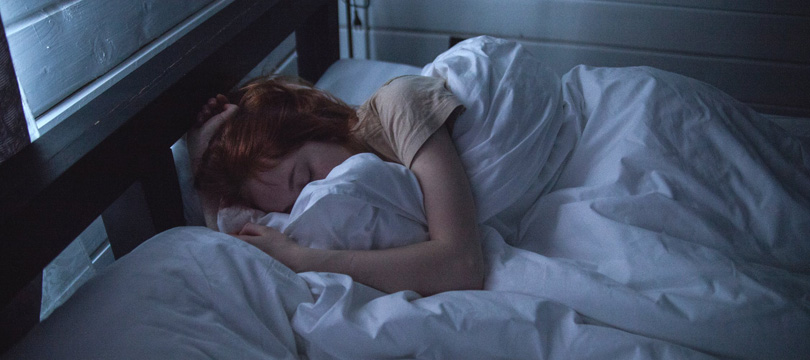Menu
Sign up for our newsletter!
Join us! We will share tips, strategies, and ideas for improving your smile and improving your life. We truly believe a beautiful smile is your biggest asset.
Could You Have Sleep Apnea?

If you suspect you may have obstructive sleep apnea, you are not alone. There are 22 million adults in this country who suffer from it. According to SleepApnea.org, this is a disorder in which breathing is repeatedly yet briefly interrupted during sleep, with 80 percent of cases remaining undiagnosed. Obstructive sleep apnea is the most common kind, and happens when the muscles in the back of the throat can’t effectively keep the airway open, leading to brief pauses in sleep that can last 10 seconds or longer.
Here are the four main symptoms of sleep apnea:
1. You’re Having Trouble Sleeping
Sleep issues related to sleep apnea range from insomnia to hypersomnia.
- Insomnia is when you find it difficult to fall and stay asleep for the whole night.
- Hypersomnia is extreme drowsiness during the day, which can cause you to fall asleep while watching TV, working on the computer, or when driving, says the Mayo Clinic.
You may even be puzzled as to why you’re so tired the next day. You aren’t realizing that you might be getting a horrible night’s sleep because you stop breathing momentarily. In other cases, you are well aware you can’t sleep because you’re up most of the night with insomnia, but you never knew it could be related to sleep apnea.
Researchers have linked the two sleep disorders. Those with insomnia have symptoms brought on by sleep apnea, including frequent urination throughout the night, daytime fatigue, snoring, dry-mouth, and morning-time headaches. A recent sleep study found that 90 percent of people who have been on medications for many years for insomnia actually suffered from sleep apnea instead.
2. You’re a Chronic Snorer
Whether it’s you who is the chronic snorer or your sleep partner, keep in mind this is a key indicator of sleep apnea. Do you:
- Snore so loudly as to interrupt others in the home?
- Have shortness of breath? Choke or gasp for enough air, so much so that you abruptly awake from sleep?
- Have pauses in breathing as you sleep, as witnessed by a sleep partner?
If you answered yes to any or all of those, you could have sleep apnea. Studies show that 45 percent of adults snore on occasion and 25 percent snore every single night. Chronic snoring is more prevalent in men who are overweight, and it worsens with age.
3. You Have Frequent Morning Headaches
Frequent morning headaches that stretch throughout the day is another indication you may have sleep apnea. Why? Because your oxygen levels drop when you stop breathing; your brain isn’t getting the oxygen it needs to function. Sleep apnea also causes severe dry mouth, leading to dehydration. Both can lead to headaches. Approximately 50 percent of people who wake up with headaches likely suffer from sleep apnea.
Headache sufferers are also at a bigger risk for developing sleep apnea and other sleep disorders. In fact, the risk is two to eight times greater than those who do not suffer from frequent headaches.
4. You are Depressed or Anxious
A CDC study revealed that sleep apnea is associated with major depression regardless of factors such as age, weight, sex, or race. There is a link between snorting, gasping or cessation of breathing during sleep that come with symptoms of depression, including feelings of failure and hopelessness.
A study in the Journal of Clinical Sleep Medicine says more than 70 percent of people with sleep apnea also have depression. But interestingly, such sleep conditions may even be misdiagnosed as depression. If not treated properly, sleep apnea can heighten the risk for depression, as well as the risk for health problems such as heart disease, high blood pressure, stroke, and type 2 diabetes.
Contact Studio City Dental
Have you been experiencing any of the above symptoms? Make an appointment with Studio City Dental today at 818-762-2977. Our treatments, which include oral appliance therapy (OAT) or continuous positive airway pressure (CPAP) machines, may help.


